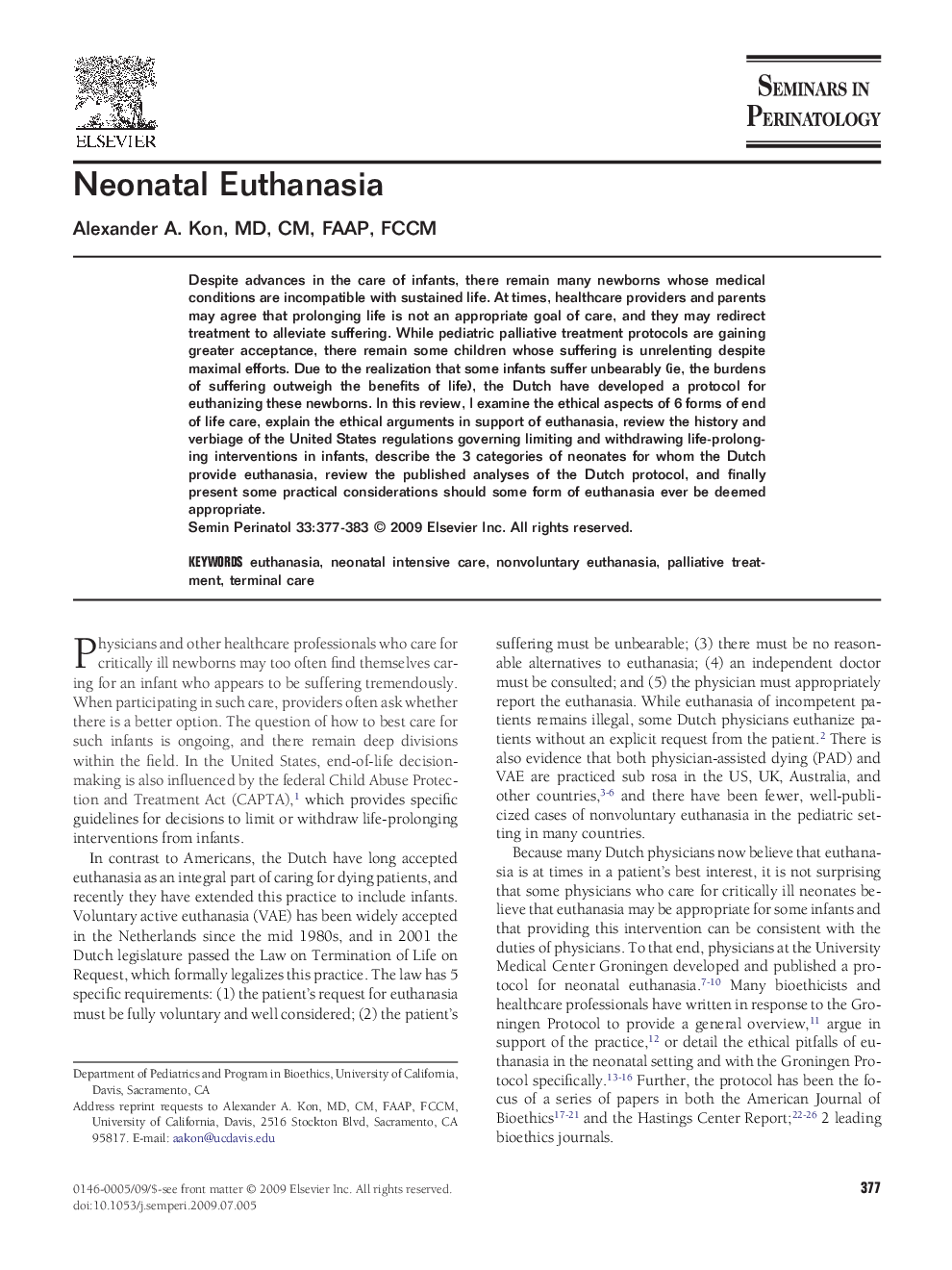| Article ID | Journal | Published Year | Pages | File Type |
|---|---|---|---|---|
| 3836813 | Seminars in Perinatology | 2009 | 7 Pages |
Despite advances in the care of infants, there remain many newborns whose medical conditions are incompatible with sustained life. At times, healthcare providers and parents may agree that prolonging life is not an appropriate goal of care, and they may redirect treatment to alleviate suffering. While pediatric palliative treatment protocols are gaining greater acceptance, there remain some children whose suffering is unrelenting despite maximal efforts. Due to the realization that some infants suffer unbearably (ie, the burdens of suffering outweigh the benefits of life), the Dutch have developed a protocol for euthanizing these newborns. In this review, I examine the ethical aspects of 6 forms of end of life care, explain the ethical arguments in support of euthanasia, review the history and verbiage of the United States regulations governing limiting and withdrawing life-prolonging interventions in infants, describe the 3 categories of neonates for whom the Dutch provide euthanasia, review the published analyses of the Dutch protocol, and finally present some practical considerations should some form of euthanasia ever be deemed appropriate.
